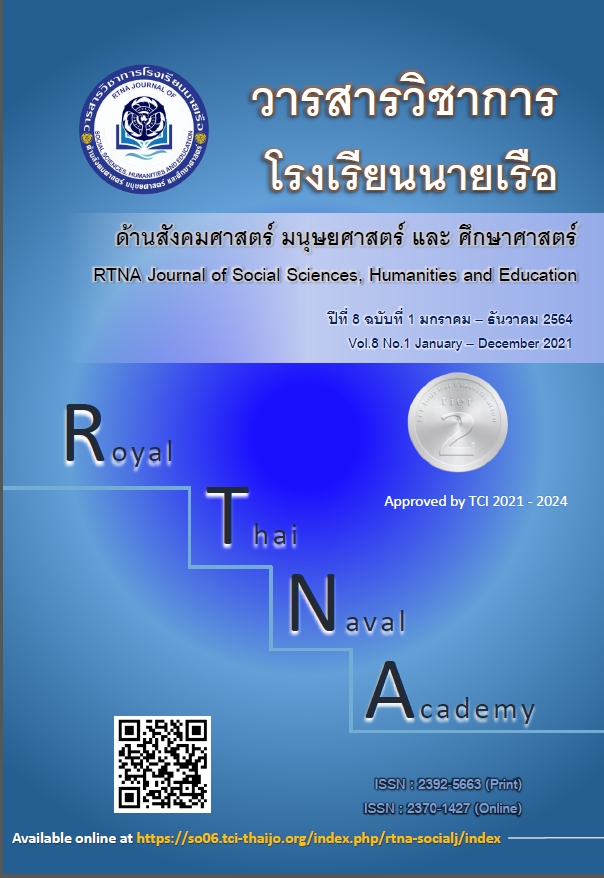Has Appeasement been the best policy towards dictatorships in the past and will continue to be in the future?
Keywords:
Appeasement Policy, World War II, Treaty of Versailles, Adolf Hitler, Neville ChamberlainAbstract
The statement “appeasement has been the best policy towards dictatorships in the past and will continue to be in the future” is not convincing based on the historical knowledge. To clarify the contradiction to the statement, this essay will use the case of the rise of Adolf Hitler’s Nazi Germany, which eventually led to World War II. The maxim “compromise seems better than conflict” appropriately describes the diplomatic relations between European superpowers, particularly Britain, France, and Germany post-World War I. If viewed in detail, World War II could be considered as a string that evolved from the failure of the appeasement policy adopted by British Prime Minister Neville Chamberlain in the 1930s. What is to be noted here is the legitimacy of the appeasement policy by the British, whether it is a thriving democratic move to postpone the war or something that should not be done because, in the end, there was also World War II. As a result of the British failure to appease Germany, which triggered World War II, this essay argues that appeasement has not been, and might never be, the right strategy and suitable policy against dictatorships.
References
Abel, T. (1938). Why Hitler Came into Power: An Answer Based on the Original Life Stories of Six Hundred of His Followers, New Jersey, US: Prentice-Hall.
Adamthwaite, A. P. (1977). The Making of the Second World War. London: Allen and Unwin.
Best, R. A. (1981). The Anglo-German Naval Agreement of 1935: An Aspect of Appeasement. Naval War College Review, 34(2), 68-85.
Cato, pseud. (2011). Guilty Men. London,UK: Faber & Faber.
Churchill, W. (1986). The Second World War, Volume 1: The Gathering Storm. New York, US: Mariner Books. Boston : Houghton Mifflin,
Graebner, N. A., & Bennett, E. M. (2011). The Versailles Treaty and Its Legacy: The Failure of the Wilsonian Vision. New York, US: Cambridge University Press.
Hitler’s Speech to the Commanders in Chief (August 22, 1939). German History in Documents and Images (GHDI). Retrived May 20, 2021, from https://ghdi.ghi-dc.org/sub_document.cfm?document_id=1546
Kennedy, P. M. (1981). The Realities behind Diplomacy: Background Influences on British External Policy, 1865-1980. London, UK: Fontana Press.
Kershaw, I. (2015). The Nazi Dictatorship: Problems and Perspectives of Interpretation. London, UK: Bloomsbury.
Leibovitz, C., & Finkel, A. (1997). In Our Time: The Chamberlain-Hitler Collusion. New York, US: New York University Press.
McDonough, F. (1998). Neville Chamberlain, Appeasement, and the British Road to War. Manchester: Manchester University Press.
Messinger, G. S. (1995). Reviewed Work: Chamberlain and Appeasement: British Policy and the Coming of the Second World War by R. A. C. Parker, The Journal of Modern History, 67(3), 716-718.
Overy, R. (2016). The Origins of the Second World War. (4th ed.). London: Routledge.
Rogers, K., & Thomas, J. (2010). History: Causes, Practices and Effects of War - Pearson Baccaularete for IB Diploma Programs. Harlow, UK: Pearson Education Limited.
Schmidt, G. (1983). The Domestic Background to British Appeasement Policy. In
W. J. Mommsen & L. Kettenacker (Eds.), The Fascist Challenge and the Policy of Appeasement. (p.101). London, UK: George Allen & Unwin.
Shore, Z. (1999). Hitler, Intelligence and the Decision to Remilitarize the Rhine. Journal of Contemporary History, 34(1), 5-18.
Taylor, A. J. P. (1991). The Origins of the Second World War. London, UK : Penguin Books.
United States Holocaust Memorial Museum. (2019). Timeline of the German Military and the Nazi Regime. Retrived May 20, 2021, from https://encyclopedia.ushmm.org/
content/en/article/timeline-of-the-german-military-and-the-nazi-regime
Wark, W. (1982). British Intelligence on the German Air Force and Aircraft Industry,
–1939, The Historical Journal, 25(3), 627-648.
Warshauer, L. D. (2004). The Munich Pact of 1938: ADR Strategies for our time?. Journal of Conflict Resolution, 5(2), 247-278.
Williams, M. (1979). German Imperialism and Austria, 1938. Journal of Contemporary History, 14(1), 139-153.
Downloads
Published
Issue
Section
License
The author has the sole responsibility for the material published in RTNA Journal of Social Sciences, Humanities, and Education, which the editorial team may not agree on that material.
RTNA Journal of Social Sciences, Humanities, and Education owns the copyright of the text, the illustration, or other material published in the journal. No parts or the whole of the material published may be disseminated or used in any form without first obtaining written permission from the academy.






